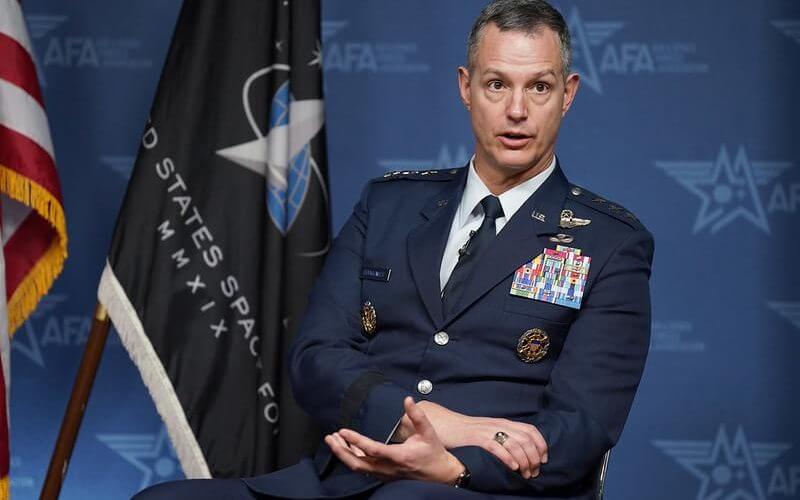A top American military official at the United States Central Command (CENTCOM) warned this week that Russia and the Islamic Republic of Iran "have a growing relationship" and that Russia is "beholden to Iran" following several months of Iran selling weapons to Moscow in the wake of Putin's invasion of Ukraine.
Speaking to reporters, US Lieutenant General Alexus G. Grynkewich, commander of the 9th Air Force and combined forces air component commander for US CENTCOM, said that Russia could potentially open avenues for Tehran to advance in the region, leading to further instability and chaos.
Grynkewich mentioned Syria, where Russia has had heavy troop presence for years following Syrian President Bashar-al Assad's close relationship with Vladimir Putin.
Grynkewich referred to the Global Coalition to Defeat ISIS, whose members carry out attacks in Syria against ISIS targets, stating that Tehran "certainly wants the coalition to depart from Syria."
If the coalition partners were to retreat from their role in Syria, Tehran would have the ability to have "Iranian-aligned groups move advanced conventional weapons and lethal capabilities across Syria for their own purposes: to threaten Israel or to threaten other interests with whom they disagree," Grynkewich said.
"If they are able to open up avenues where Iran is able to push lethal aid through Syria that threatens Israel, that is certainly a concern for the US," the US CENTCOM Commander added.
The US CENTCOM Commander also told reporters that allies, including Israel, have "every right to act in their own defense, and the US has an ironclad commitment to the defense of Israel. And that will continue."
Grynkewich praised the renewal of diplomatic ties between Saudi Arabia and Tehran brokered by the Chinese government, saying that action that diffuses tensions in the region is a "positive trend line."
The US CENTCOM Commander did urge caution about the new partnership, describing Iran as an "authoritarian, theocratic regime that is bent on punishing people for very minor transgressions of freedom."
In a statement released this month, a Biden White House spokesperson said the "Russia-Iran military partnership appears to be deepening," citing Iran's sale of hundreds of attack drones to Russia."
After launching his invasion of Ukraine in February of last year, Iran, Syria, North Korea, and other allies of Putin voiced their support for his invasion providing economic and military aid against the West, which enacted a bevy of sanctions against the Russian economy.
Since the war began, Tehran has supplied the Russian military with drones and military guidance against Ukrainian forces, prompting the US and allies to enact economic sanctions against Iran.
In various interviews with Western media, Iranian officials have denied sending military drones to Russia against Ukraine.
In early June of this year, newly declassified intelligence information revealed that Iran was sending material to Russia to build a domestic facility to build military drones against Ukraine.
In May, Russia and Tehran agreed to finance and build a railway line that will form part of a developing international cargo route to bring economic goods to each other in the wake of international sanctions.
Related Story: Congress Restricts Funding of Chinese, Russian Labs, but Loopholes Remain









